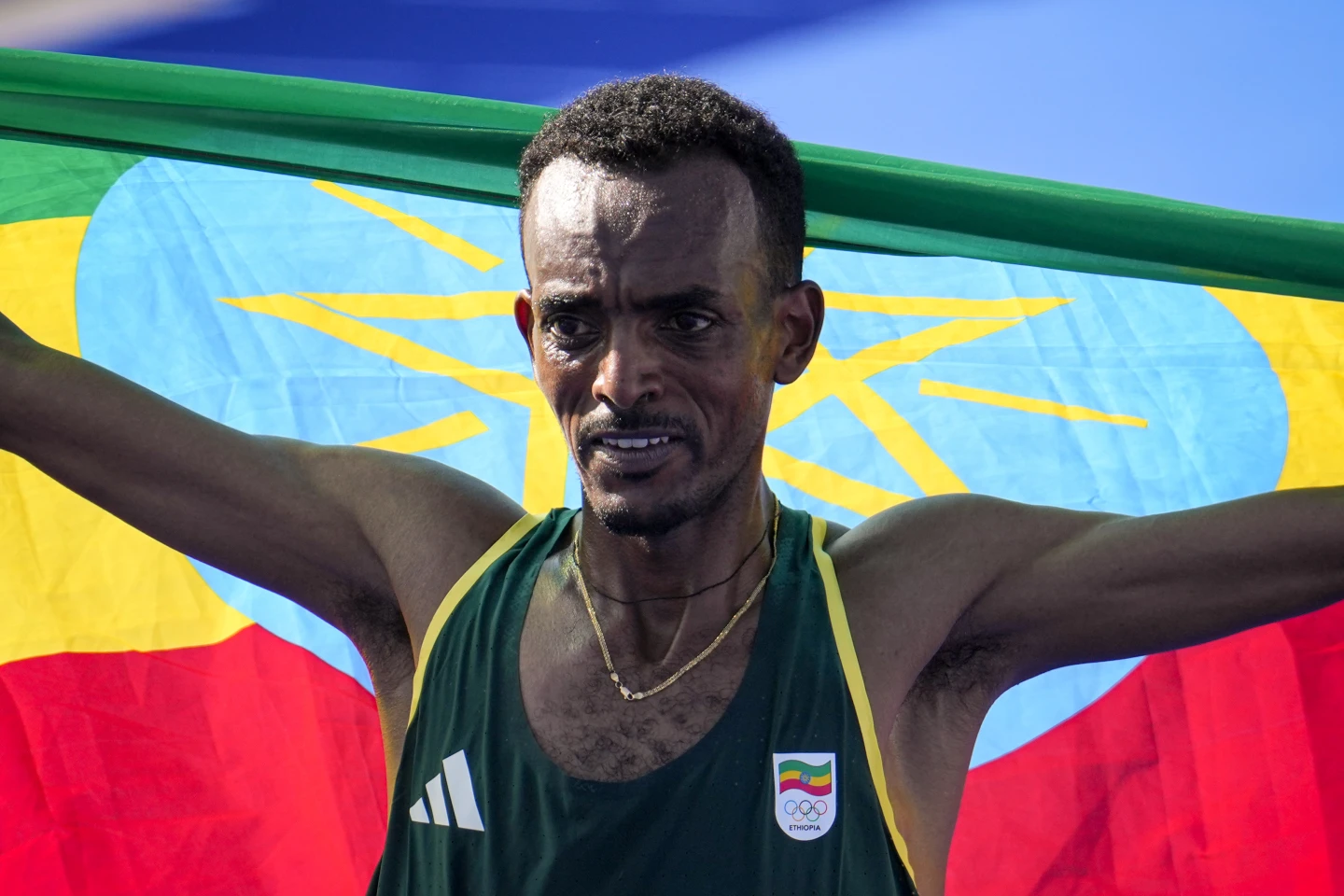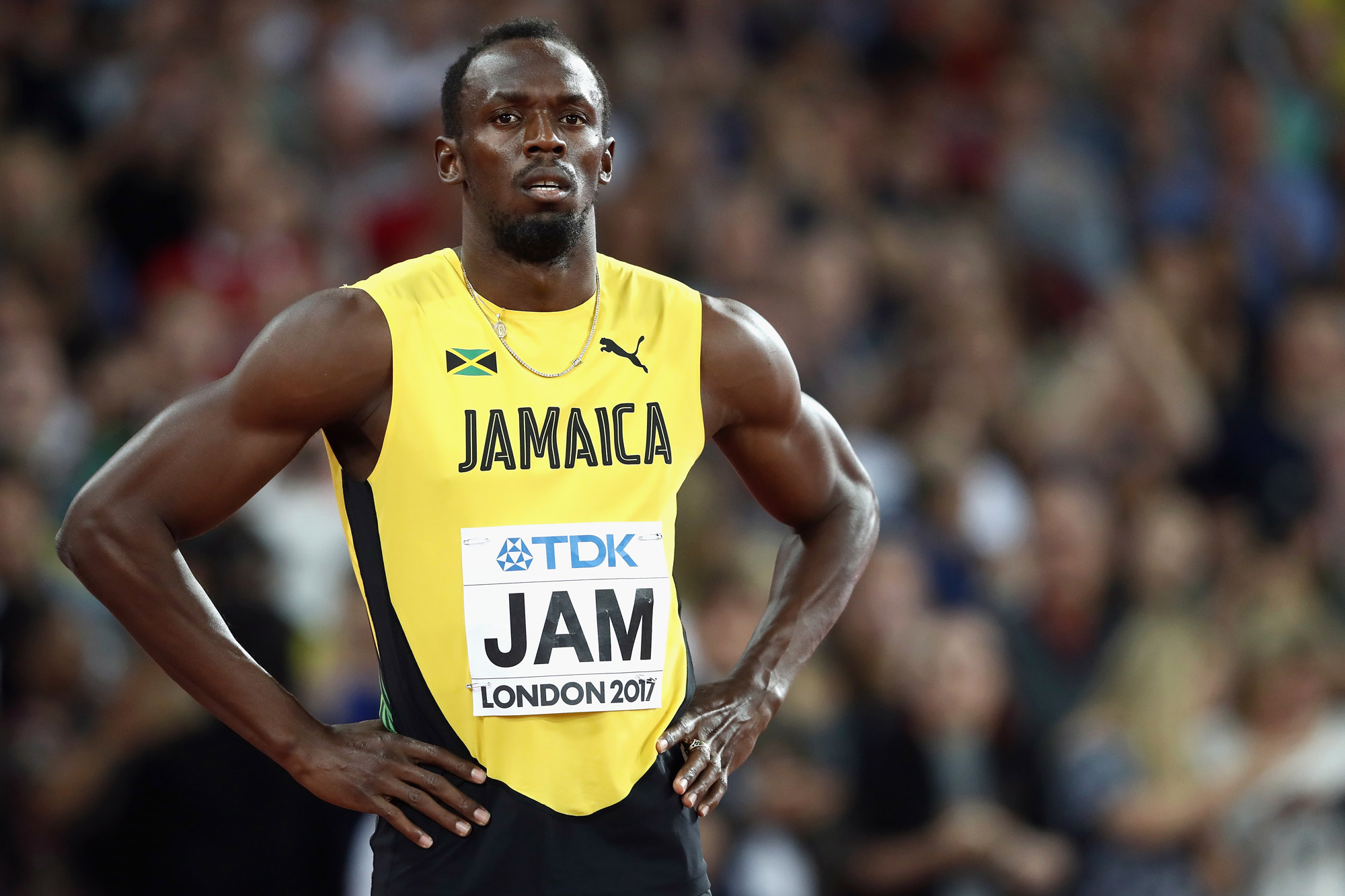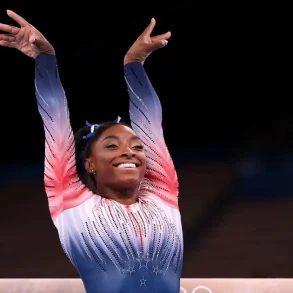Ethiopian runner Tamirat Tola won the men’s marathon at the Paris Olympics on Saturday, ending Kenya’s long winning streak in the event.
Tola finished with an Olympic record time of 2 hours, 6 minutes, and 26 seconds. Belgium’s Bashir Abdi came in second, 21 seconds behind, and Kenya’s Benson Kipruto took third, 34 seconds back.
The 32-year-old Tola looked back as he approached the finish line but was far ahead and had time to enjoy the cheers. Just two weeks ago, he was added to the marathon team as a replacement for injured teammate Sisay Lemma.
“I was the reserve in the Ethiopian team, but when Sisay had injuries then I had a chance,” Tola said. “I was fully prepared and knew I could fulfill my dream. I am very proud, very happy.”
This was Tola’s second Olympic medal; he previously won one in the 10,000 meters at the 2016 Rio Games.
“After I came from track I achieved a lot in marathon,” Tola said, who had set a course record at the New York marathon last year.
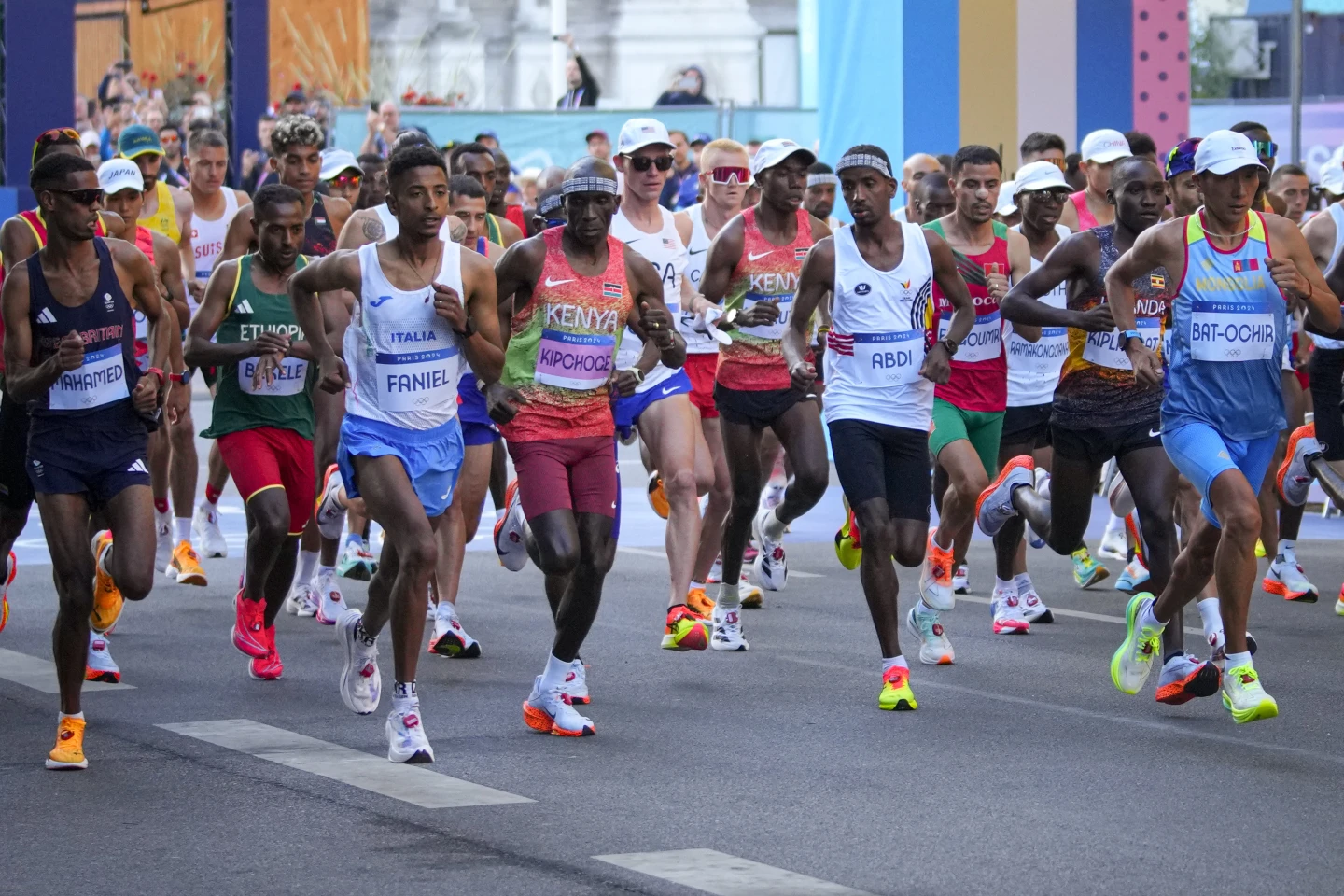
It was also a second Olympic medal for 35-year-old Abdi, who improved from his bronze medal at the Tokyo Games three years ago.
Tola had previously beaten Abdi in the marathon at the 2022 world championships, where Abdi finished third.
Britain’s Emile Cairess finished fourth on Saturday, managing a final sprint after running 42 kilometers (26 miles) in the heat.
Two-time defending champion Eliud Kipchoge struggled and was over eight minutes behind Tola at the 30-kilometer mark, ultimately not finishing the race.
The last time a non-Kenyan won the marathon was Ugandan Stephen Kiprotich at the London Games in 2012.
Kipchoge, who is 39, was aiming to become the first man to win the marathon three times. Ethiopian Abebe Bikila and Waldemar Cierpinski from then-East Germany had each won consecutively in previous Games.
Breaking from tradition, the men’s Olympic marathon was not held on the final day, with the women’s marathon scheduled for Sunday.
The marathon started from Hôtel de Ville (City Hall) and wound through parks and forests. The course, while picturesque, was described as very tough, with some steep inclines reaching 13%.
“Going down for me was the most challenging,” Abdi said. “It was hurting your knees, your back.”
Kipruto found it easier, noting, “I did some preparations and so I knew what to expect.”
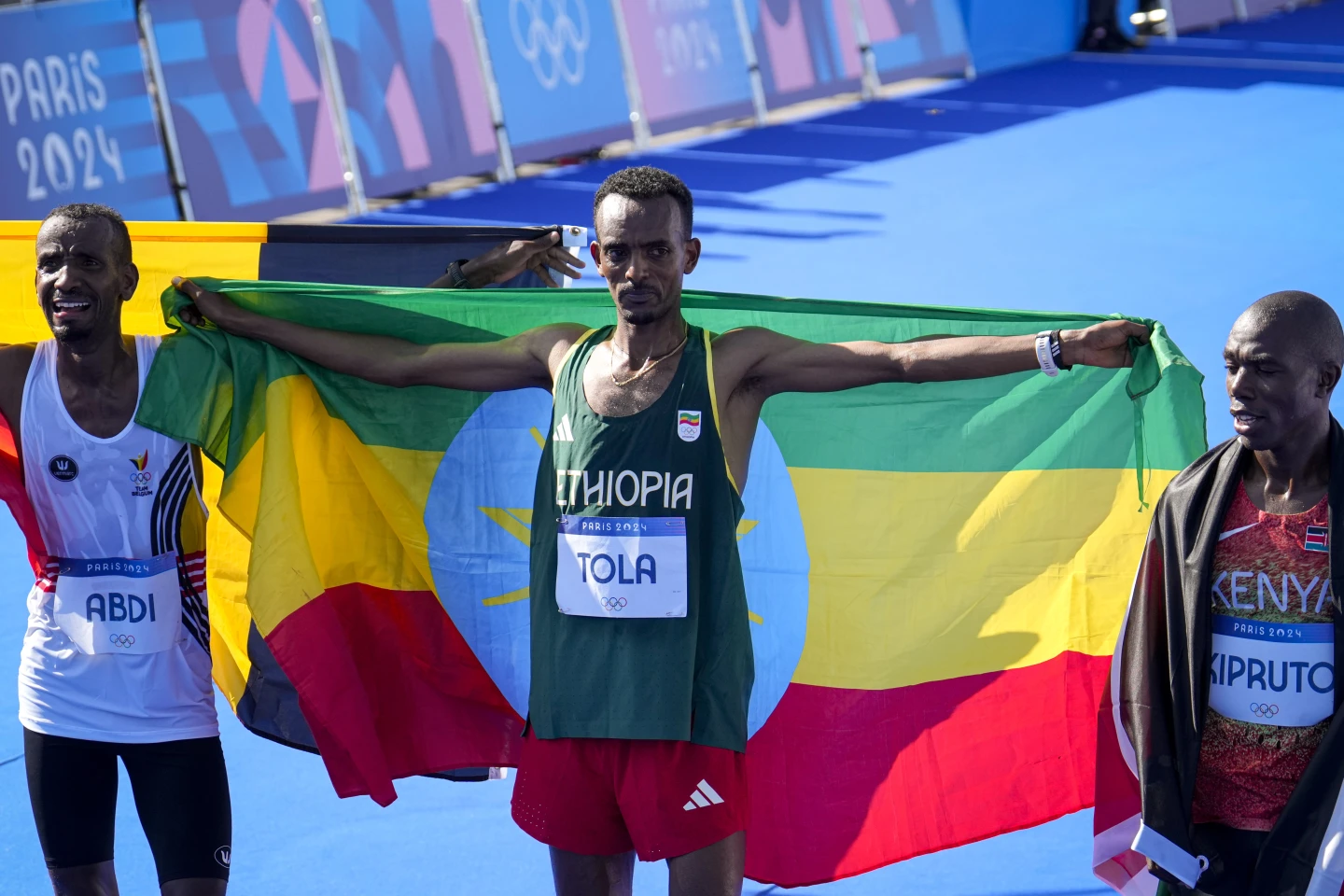
Under clear skies, runners passed by landmarks like Opéra Garnier and the Louvre museum. About halfway through, they went near the Palace of Versailles, a former royal residence, before heading back through Meudon forest toward Paris and past the Eiffel Tower.
Tola was leading with Italian Eyob Faniel and American Conner Mantz near the halfway point, but they were soon caught by a large group. Kipchoge was already over a minute behind and fell further back.
Tola then moved ahead and, after 35 kilometers, was 18 seconds in front of his fellow Ethiopian Deresa Geleta, who finished fifth.
After two hours, runners neared the gold-domed Invalides monument, where Napoleon’s tomb is located.
Last year, French farmers had protested at Invalides, demanding to use banned pesticides on their crops. This time, there were no protests, just cheers and warm applause for each runner, with the crowd staying to support those finishing later.
The race was overshadowed by the memory of Kenya’s Kelvin Kiptum, the world record holder who would have been a top gold medal contender. Kiptum, along with his coach Gervais Hakizimana, died in a crash near Kaptagat, Kenya, on February 11.



